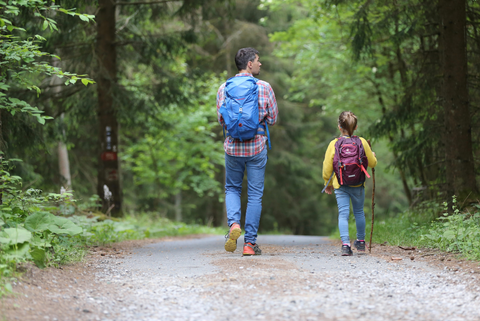
Sustainable Parenting: Teaching Kids About Environment-Friendly Choices
Sustainable Parenting: Teaching Kids About Environment-Friendly Choices
In today's rapidly changing world, teaching children about sustainable choices has become increasingly important. By instilling eco-conscious values from an early age, parents can empower their children to make environmentally responsible decisions that contribute to a more sustainable future. This blog post will delve into effective strategies, engaging activities, and practical tips to help parents incorporate sustainable parenting practices into their daily lives.
Let's explore how we can teach our kids about environment-friendly choices, with a particular focus on the significance of secondhand clothing and waste reduction.

-
Lead by Example: Children learn by observing their parents, so it's crucial to be role models of sustainable behavior. Incorporate eco-friendly practices into your daily routine, such as reducing water and energy consumption, recycling, and opting for reusable items. When children witness these actions, they are more likely to adopt sustainable habits themselves.
-
Emphasize the Importance of Secondhand Clothing: Teaching children about the environmental impact of fast fashion and the significance of secondhand clothing can be eye-opening. Explain how buying and selling preloved clothes can reduce waste, conserve resources, and support a circular economy. By involving your kids in the process of choosing secondhand items, you encourage them to think more about the importance of sustainability. This will not only save money but also encourage conscious consumption.

-
Reduce, Reuse, Recycle: Teach children the importance of the three R's: Reduce, Reuse, and Recycle. Encourage them to minimize waste by opting for reusable water bottles, lunch containers, and shopping bags. Involve them in recycling activities at home and explain how recycled materials can be transformed into new products, reducing the need for raw materials and energy consumption.

-
Engage in Nature-Friendly Activities: Spend quality time outdoors and engage in activities that promote a connection with nature. Take your children to local parks, beaches, or nature reserves, and discuss the importance of preserving these environments. Planting trees, gardening, and composting are also great hands-on activities that teach children about the value of nature and the benefits of sustainable practices.

-
Teach about Food Sustainability: Food choices have a significant impact on the environment. Teach children about the benefits of eating locally sourced, organic, and seasonal produce. Involve them in meal planning, grocery shopping, and cooking, emphasizing the importance of reducing food waste. Teach them how to compost food scraps and explain the environmental benefits of composting for soil health and reducing greenhouse gas emissions.

-
Support Environmental Education: Explore opportunities for your children to learn more about sustainability through books, documentaries, and educational websites. Many organizations offer workshops, camps, and activities focused on environmental education. By participating in these programs, children can gain a deeper understanding of sustainability and develop a lifelong commitment to making eco-friendly choices.
By incorporating sustainable practices into our parenting approach, we can raise environmentally conscious children who understand the importance of making eco-friendly choices. Teaching children about the significance of secondhand clothing, waste reduction, and other sustainable habits empowers them to contribute to a greener future. Remember, leading by example, engaging in nature-friendly activities, and fostering critical thinking skills are all essential components of sustainable parenting. Together, let's nurture a generation that values the environment and strives to make a positive impact on the planet!

Leave a comment